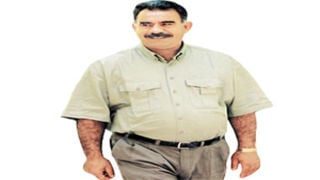
Eleven years ago, Kurdish fugitive Abdullah Ocalan was tracked down to Kenya and captured by Mossad in a spy drama worthy of Hollywood.
| File | Nation Media GroupNews
Premium
Turk’s commando-style snatch eerily similar to Ocalan’s
What you need to know:
- Mr Ocalan, the founder of Kurdistan Workers’ Party (PKK), was one of the world’s most wanted fugitives.
- Ocalan arrived in Nairobi looking for a place to hide as he sought asylum in various countries, including South Africa.
The dramatic capture of Turkish national Selahaddin Gulen in Nairobi on Tuesday calls to mind the arrest and extradition of Turkish rebel Abdullah Ocalan slightly over a decade ago.
Mr Gulen, the nephew of an influential cleric accused of plotting to overthrow the Turkey government, was seized in a commando-style raid with eerie similarities to that of Ocalan.
On February 2, 1999, a private jet landed at the Jomo Kenyatta International Airport carrying Mr Ocalan, who was disguised as a prominent Cypriot journalist by the name Lazaros Mavros.
By then, Mr Ocalan, the founder of Kurdistan Workers’ Party (PKK), was one of the world’s most wanted fugitives.
At home, the government was blaming PKK and Ocalan for the deaths of more than 44,000 people as they waged a 15-year armed struggle in Turkey and Iraq for the recognition of a Kurdish state.
Ocalan arrived in Nairobi looking for a place to hide as he sought asylum in various countries, including South Africa.
Before coming to Nairobi, Ocalan had made an attempt to go to Holland, according to Gordon Thomas, the author of Gideon’s Spies: The Secret History of the Mossad.
'Black Operation'
Unknown to Ocalan, the then Turkish Prime Minister Bulent Ecevit had sought the help of Israeli Prime Minister Benjamin Netanyahu for the capture of the fugitive.
Netanyahu tasked his Mossad chief Efraim Halevy to launch a “black operation”, one in which nobody would ever find out Israeli’s involvement.
The Mossad team arrived in Nairobi on February 5, 1999 and traced Ocalan to the Greek Embassy compound in Nairobi where he was hiding. They then set up eavesdropping equipment at the embassy.
When the Kenyan government discovered the man who had arrived in Nairobi was not the Cypriot journalist under whose guise he was travelling in, then Foreign Affairs minister Bonaya Godana and the Kenyan government put pressure on Ocalan to leave.
By now, Ocalan had officially sought asylum in the Greek Embassy in Nairobi.
There was one problem, though.
Ocalan had travelled on a fake passport and thus could not leave without a new one. The Greeks were not willing to issue him with travel documents either.
Sentenced to death
Back in Greece, the prime minister was threatening to fire his three ministers and they decided to send “a football team” to Nairobi with firm instructions – get Ocalan, codenamed “grandmother” out of the embassy and dump him in a local hotel.
That had to be done by Monday, February 15, journalist and historian John Kamau writes.
When Mr Godana provided a plane to fly Ocalan out of the country, the former Finance minister gave him an ultimatum to leave Kenyan before 7pm.
Ocalan agreed to leave the Greek embassy believing he was being flown to Amsterdam. Instead of being escorted by embassy vehicles, he made the mistake of boarding an unmarked police vehicle without his aides.
The Kenyans drove Ocalan to the airport and delivered him to Turkish agents, who were waiting for him.
Ocalan was to be sentenced to death for treason but his sentence was commuted to life imprisonment in 2002 when the death penalty was abolished.
The rebel remains holed up in a prison in Turkey.





